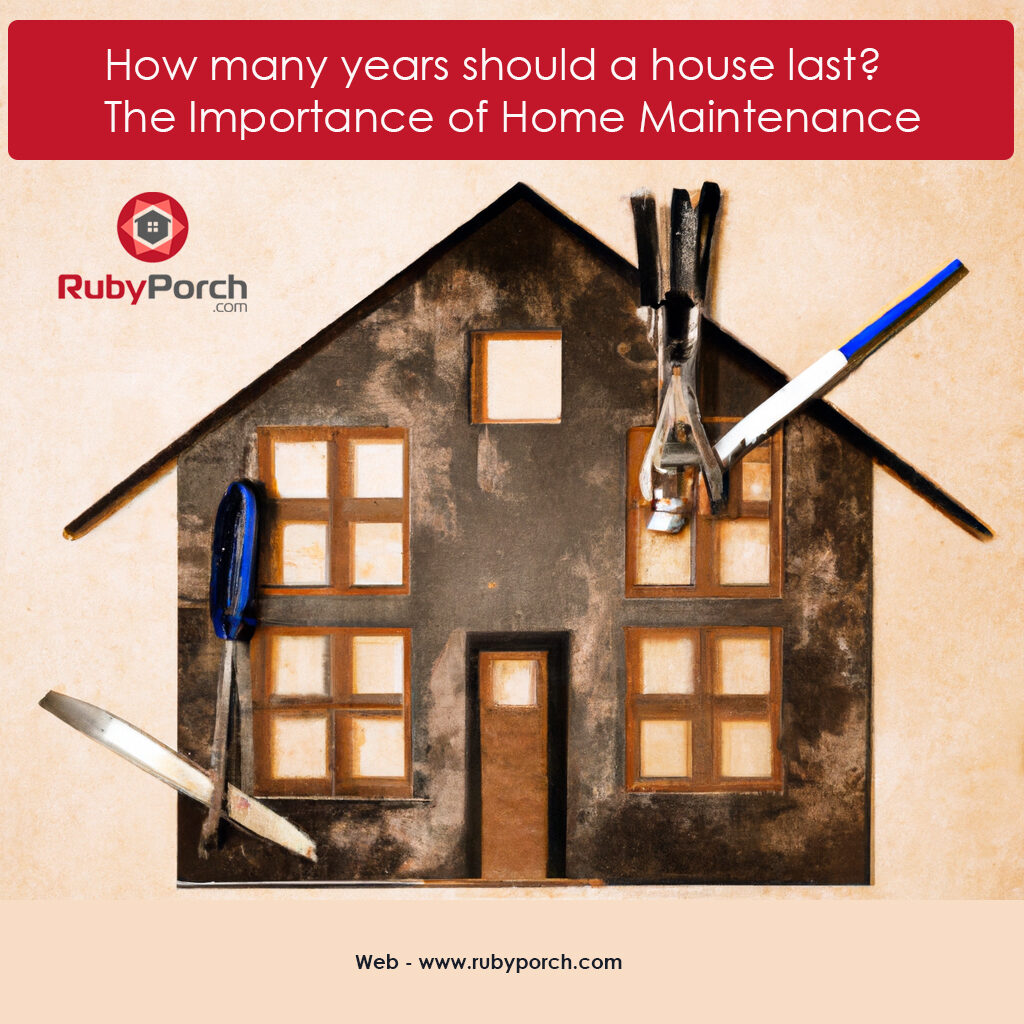One of the most crucial things to think about when purchasing a home is how long it will survive. When you first move in, a home could look solid and resilient, but it’s crucial to keep in mind that it’s not impervious to damage. For a house to remain in good shape and last a long time, frequent upkeep is necessary. In this article, we’ll talk about the value of home upkeep and how long a house should survive.
How many years should a house last?
A house’s longevity is influenced by a number of factors, such as the materials used in building, the level of craft skills, and the frequency of maintenance. A well-built and maintained home should typically survive between 50 and 100 years.
Some homes, nevertheless, can live considerably longer than this. Because of their durable construction and the care and attention they have received over the years, many historic homes constructed in the 19th century are still surviving today.
On the other hand, some houses may have a much shorter lifespan if they are poorly built or if they are not properly maintained. Neglecting routine maintenance tasks can lead to serious problems down the road, such as leaks, mold, and structural damage.
The importance of home maintenance
Regular home maintenance is essential for ensuring that your house lasts as long as possible. By taking care of your home on a regular basis, you can prevent small problems from turning into major repairs and keep your house in good condition for years to come.
Here are some of the most important home maintenance tasks that you should be doing on a regular basis:
Cleaning gutters and downspouts
Clogged gutters and downspouts can cause water damage to your roof and foundation. Make sure to clean them out at least twice a year to prevent problems.
Checking for leaks
Water leaks can cause serious damage to your home over time. Regularly check for leaks around windows, doors, and plumbing fixtures, and fix any problems as soon as you notice them.
Inspecting your roof
Your roof is your home’s first line of defense against the elements. Inspect it regularly for damage and make repairs as needed.
Servicing your HVAC system
Your HVAC system is responsible for keeping your home comfortable year-round. Have it serviced annually to keep it in good condition and prevent breakdowns.
Sealing gaps and cracks
Gaps and cracks in your home’s exterior can allow moisture and pests to enter your home. Seal them up to keep your home secure.
By keeping up with these and other home maintenance tasks, you can prevent serious problems and extend the lifespan of your house.
The cost of neglecting home maintenance
Neglecting home maintenance can be a costly mistake. Small problems can quickly turn into major repairs, costing you thousands of dollars in the long run.
For example, a small water leak can quickly turn into a major mold problem if left unchecked. Not only is mold difficult and expensive to remove, but it can also cause health problems for you and your family.
Similarly, a small crack in your foundation can turn into a serious structural problem if left unfixed. Fixing a cracked foundation can cost tens of thousands of dollars, so it is much more cost-effective to address the problem early on.
In addition to the financial cost of neglecting home maintenance, there is also the emotional cost. Dealing with major repairs can be stressful and time-consuming, taking away from the time and energy that you could be spending on other things.
Conclusion
In conclusion, a house’s lifespan is influenced by a number of variables, such as the calibre of its construction and the frequency of its upkeep. While a poorly constructed or neglected house may have, a well-built and well-maintained one can last for many decades. If you’re looking to buy or visit a high-quality home? click here to know more.






